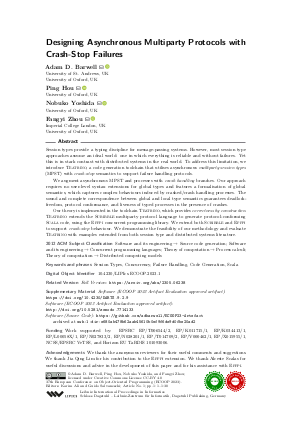LIPIcs.ECOOP.2023.1.pdf
- Filesize: 1.27 MB
- 30 pages

 Creative Commons Attribution 4.0 International license
Creative Commons Attribution 4.0 International license



Feedback for Dagstuhl Publishing